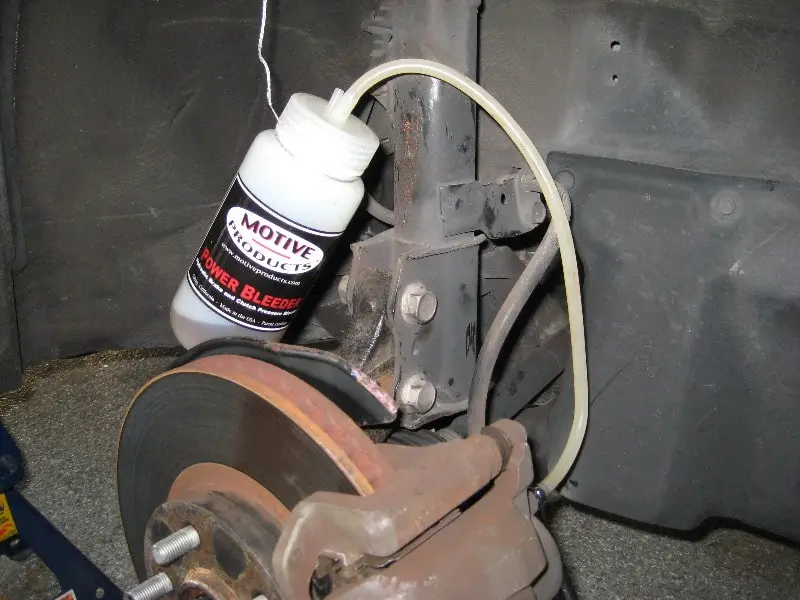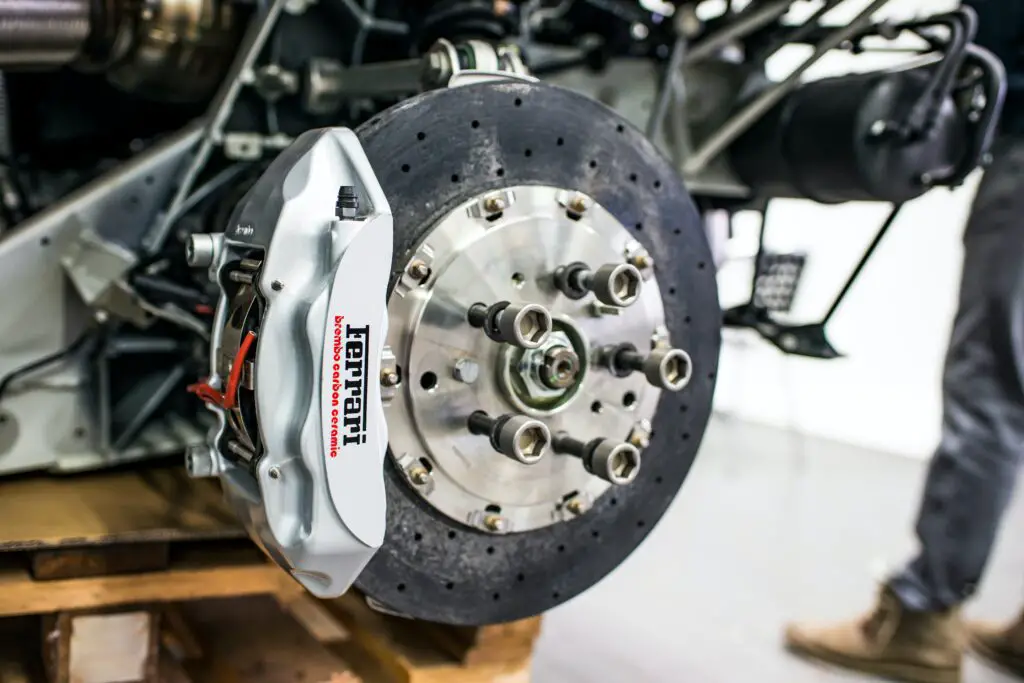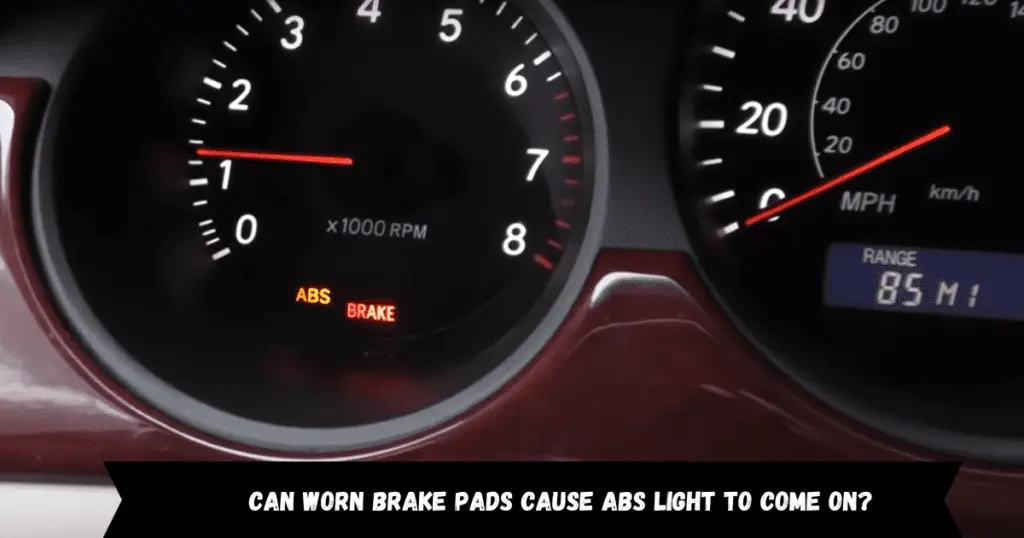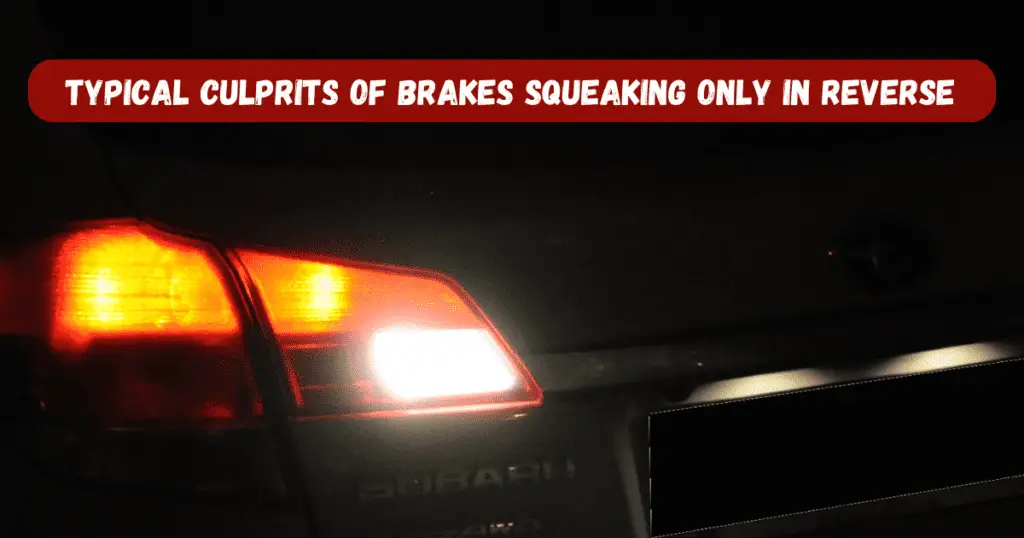Brake fluid is the blood of your vehicle’s brake system. It flows through the lines and hoses, transmitting pressure from your foot on the brake pedal to the brake pads or shoes to stop your vehicle. But over time, brake fluid can become contaminated and degrade, potentially compromising braking performance. This leads many drivers to ask: is a brake fluid flush really necessary?
In this complete guide, we’ll cover everything you need to know about is brake fluid flush necessary.:
- What exactly is a brake fluid flush
- Why it’s an essential maintenance service
- Signs your vehicle needs a flush
- How often you should get one
- Answers to common brake fluid flush FAQs
We’ll also analyze whether a brake fluid flush is a “waste of money” as some claim, look at the differences between a flush and simply topping off fluid, and more. Time to put the brakes on confusion!
What is a Brake Fluid Flush?
Is brake fluid flush necessary? A brake fluid flush is a maintenance service where a mechanic drains the old, used fluid from your brake lines and components, and then refills the system with fresh, clean fluid. It’s essentially an oil change for your brake fluid.
A brake fluid flush machine removes old fluid and pumps new fluid into the system
This thorough process cleans out contaminants that accumulate over time:
- Moisture – Brake fluid is hygroscopic, meaning that it absorbs moisture from the air. This lowers its boiling point, reducing braking efficiency.
- Dirt/debris – Brake dust and other gunk inside brake parts get mixed into the fluid.
- Chemical deposits – The additives in brake fluid eventually start to break down.
Flushing gets rid of these impurities to maintain proper brake function.
Mechanics typically use an automated flush machine that pushes new fluid through while sucking out the old in one continuous loop. This extracts more contaminants than just draining and refilling the reservoir.
Result: Fresh, clean fluid flows freely throughout the system, ensuring strong braking power.
Now let’s look at why this service is so vital.
Why a Brake Fluid Flush is Essential
Is brake fluid flush necessary? Clean brake fluid is critical for safe, reliable braking performance. Here’s why you can’t afford to skip brake flushes:
1. Stopping Power Declines Over Time
As explained above, impurities in old brake fluid lower its boiling temperature and degrade effectiveness. Contaminated fluid simply can’t apply as much pressure to stop your vehicle compared to fresh fluid.
Brake fluid should be clear with a light amber color – not murky or darkened brown/black. If it looks dirty, you’re overdue for a flush!
2. Brake Failure Risk Increases
Without adequate pressure, you may experience brake fade where pedal pressure drops, increased stopping distances, or even complete brake failure. Not exactly ideal when trying to avoid an accident!
Don’t let contaminated brake fluid cause dangerous brake failure
3. Other Brake Components Get Damaged
On top of poor performance, bad fluid also causes internal corrosion and deterioration of brake cylinders, valves, seals, springs, and other hardware. This leads to leaks and more costly repairs.
Consider a brake fluid flush as inexpensive brake insurance. $100 now saves you a potential $1,000+ brake overhaul later!
4. It’s Standard Maintenance
Vehicle manufacturers recommend flushing the brake fluid every 2 years or 30,000 miles for a reason – because it’s crucial!
You wouldn’t think twice about regularly changing engine oil. Treat brake fluid with the same respect. It protects a system just as vital.
We’ll touch more on recommended service intervals shortly. First, let’s look at signs you may be overdue for new fluid.
5 Signs Your Vehicle Needs a Brake Fluid Flush
is brake fluid flush necessary? Don’t wait until you have a brake emergency to service your fluid. Watch for these subtle clues a flush is needed:

1. Spongy Brake Pedal – If the pedal sinks lower than normal before braking action engages, contaminated fluid may be compressing inside the lines. Time to flush it out.
2. Brake Warning Light – The brake system hydraulic warning on your dash indicates low fluid level or pressure. Topping off dirty fluid won’t solve an underlying contamination issue.
3. Leaks & Stains – Fluid stains around wheel wells and a dropping reservoir level mean seals & hoses are deteriorating. Fresh fluid can get things nice and tight again.
4. Poor Braking Ability – Longer stopping distances? Difficulty stopping when hot? Brakes not performing up to par? Better check that fluid!
5. Strange Noises – Odd brake noises like squeaks, squeals, or grinding could signal rust, debris, and or issues flushed fluid can remedy.
Don’t ignore these clues. Schedule a flush service ASAP to avoid bigger problems waiting to happen!
Recommended Brake Fluid Flush Intervals
is brake fluid flush necessary? Now we know what a fluid flush is, why it’s important, and signs you might need one soon. But how often exactly should you get it done?
Most vehicle manufacturers recommend flushing the brake fluid every 2 years or 30,000 miles, whichever comes first.
For example:
| Car Brand | Recommended Flush Interval |
|---|---|
| Toyota | Every 3 years or 30,000 miles |
| Honda | Every 3 years regardless of mileage for every |
| ry 2 years or 30,000 miles | |
| Chevy | Every 2 years or 30,000 miles |
These intervals assume “normal” driving conditions. You should flush more frequently if:
- You regularly haul heavy loads ➡ extra brake wear
- Live in hot, humid climates ➡ Moisture contamination
- Drive in stop-and-go traffic ➡ rapid fluid breakdown
Bottom Line: Don’t exceed 2-3 years or 30k miles between brake fluid flushes. Annually is even better if you drive extensively. The small upfront cost saves bigger headaches later!
Brake Fluid Flush VS Brake Fluid Change
You might be wondering – what’s the difference between a brake fluid flush and a basic brake fluid change?
With a basic fluid change, the mechanic only drains the old fluid from the reservoir and tops it off with new fluid. The key word is “reservoir” – the rest of the brake lines/components are untouched.
A full flush goes much further by actively cycling new fluid through the entire system to flush out all the old fluid lurking in the nooks and crannies. This gives you truly fresh, uncontaminated fluid throughout.
| Fluid change fluid | d flush |
|---|---|
| Cheaper service more | e expensive service only |
| y replaces fluid in reservoir flushes | s ENTIRE system doesn’t |
| t address deeper contamination | Deep cleans all brake components |
Bottom Line: Spend a few extra dollars for a full flush. It’s the only way to thoroughly purge the hidden gunk that jeopardizes brake safety. A basic fluid change just scratches the surface.
Is a Brake Fluid Flush Necessary?
After reading this guide, you may rightfully ask:
“My brakes seem fine. Is getting regular brake fluid flushes TRULY necessary?”
Consider these facts:
Fact: Brake fluid inevitably absorbs moisture and breaks down over time → reduced stopping power
Fact: This contamination damages seals, valves, springs → fluid leaks, and bigger repairs
Fact: Flushes as preventative maintenance PREVENT these costly issues
Fact: New fluid maintains the hydraulic pressure you NEED to stop quickly
Fact: Brake failure has led to serious accidents and deaths
is brake fluid flush necessary? Your brakes may “seem” fine…until that moment you NEED to stop quickly and contaminated fluid fails you.
Don’t wait for a warning light, noise, leak, or accident before taking action. Stay proactive with routine brake fluid flushes as vehicle makers recommend. It’s car maintenance 101.
Protect yourself, your passengers, and fellow motorists on the road. Don’t cut corners with dirty brake fluid – the repercussions are too steep.
Brake Fluid Flush – Worth the Investment?
Critics may call it an “unnecessary upsell” or “dealer scam” to make more money. After all, directly replacing worn brake pads and rotors during a brake job has tangible value.
is brake fluid flush necessary? But remember – you CAN’T physically see the contamination degrading your fluid’s integrity inside the hoses. And “clear to light amber” fresh fluid looks innocently similar to overused, water-laden fluid.
Because of this clean deception, drivers wrongfully assume their old fluid is perfectly fine, not realizing the hidden risks. Like changing your oil, flushing dirty fluid truly pays preventative dividends…
Expense of Brake Fluid Flush: $125 (for a typical sedan)
Payoff:
- Averts brake failure catastrophes
- Prevents bigger, pricier brake repairs
- Keeps yourself and others safe on the road
Most people mindlessly spend over $100/month on non-essentials like…
- Eating out
- Fancy coffee drinks
- New clothes
Yet somehow $125 every 2 years for an ESSENTIAL brake service seems unreasonable? Pretty backward logic!
Bottom Line: In light of the immense safety benefits and money saved on future repairs, yes – brake fluid flushes are worth the modest investment.
DIY Brake Fluid Flush at Home
is brake fluid flush necessary? If cost is a concern, understandably you might wonder about doing a DIY brake fluid flush yourself at home. Before attempting this, consider a few warnings:
- Brake fluid is highly CORROSIVE to paint, plastic, and rubber
- Opening the system exposes fluid to moisture that degrades it
- Brake bleeder valves are temperamental and often break
- Not cycling fluid properly could make contamination WORSE
- Any DIY mistakes risk brake failure disaster
In short – unless you’re a very skilled DIY mechanic, brake system work is best left to the professionals! Pay a shop to flush your vehicle quickly, safely, and thoroughly. It’s worth the labor costs for peace of mind alone.
If determined to flush your brake fluid, at least watch several tutorial videos first. But shelling out $100 for a pro to do this right is money well spent. It’s not worth jeopardizing your safety to pinch pennies.
FAQs – Is Brake fluid flush necessary
Let’s recap some common brake fluid flush questions vehicle owners often have:
What happens if you don’t flush brake fluid?
Failure to flush lets contamination build up over time – causing spongy brakes, longer stopping distances, and eventual brake failure as system components deteriorate. Don’t wait for disaster before you act!
Is a brake fluid flush mandatory?
Technically no – you won’t get pulled over if you skip routine flushes. However given how utterly critical brakes are, deliberately neglecting brake fluid puts yourself and others at tremendous risk. The devastating consequences make spending a couple of hundred bucks every 2 years an easy choice.
How do I know if my car needs a brake fluid flush?
Signs include a soft brake pedal, poor stopping ability, low fluid warning light, visible leaks/stains, and strange noises when braking. Adhering to factory fluid flush intervals (every 2 years or 30k miles) ensures you stay ahead of contamination.
Is it really necessary to change the brake fluid?
YES! Unlike oils which just lubricate, brake fluid is hygroscopic meaning it absorbs outside moisture over time that boils easier and damages seals & springs. This contamination jeopardizes braking capacity hence the need for complete fluid changes. Topping off alone won’t cut it!
How long can you go without brake fluid flush?
Manufacturer specs say flush every 2 years or 30,000 miles at most before contamination critically degrades performance. However, given the lack of visibility into the system, issues can set in sooner. Think of it like changing your oil. Don’t press your luck going too long between fluid refreshes!
Is flushing brake fluid easy?
No, as a hydraulic system, it’s fairly intricate to do properly, takes special equipment, and risks plenty of mess or damage if attempted incorrectly. Best to have a trusted professional mechanic handle brake fluid flushes unless you’re an advanced DIYer. Safety first!
And there you have it – a complete guide to answer whether brake fluid flushes are necessary after all. The irrefutable evidence says YES – skipping them jeopardizes too much to ignore.
The Bottom Line – Is Brake fluid flush necessary
While brake fluid seems innocuous as it silently flows through sealed lines, overlooking fluid service allows unforeseen contamination to brew – threatening brake reliability when you least expect it.
is brake fluid flush necessary? Regular brake fluid flushes purge these hidden impurities to ensure strong braking power is there precisely when you NEED it. Much cheaper and safer than learning this lesson the hard way!
So be proactive. Follow factory flush intervals religiously. Replace dirty, degraded fluid with fresh fluid every 2 years or 30,000 miles – it’s quick, affordable brake insurance to safeguard yourself and your most critical vehicle system.
Stay safe out there!





